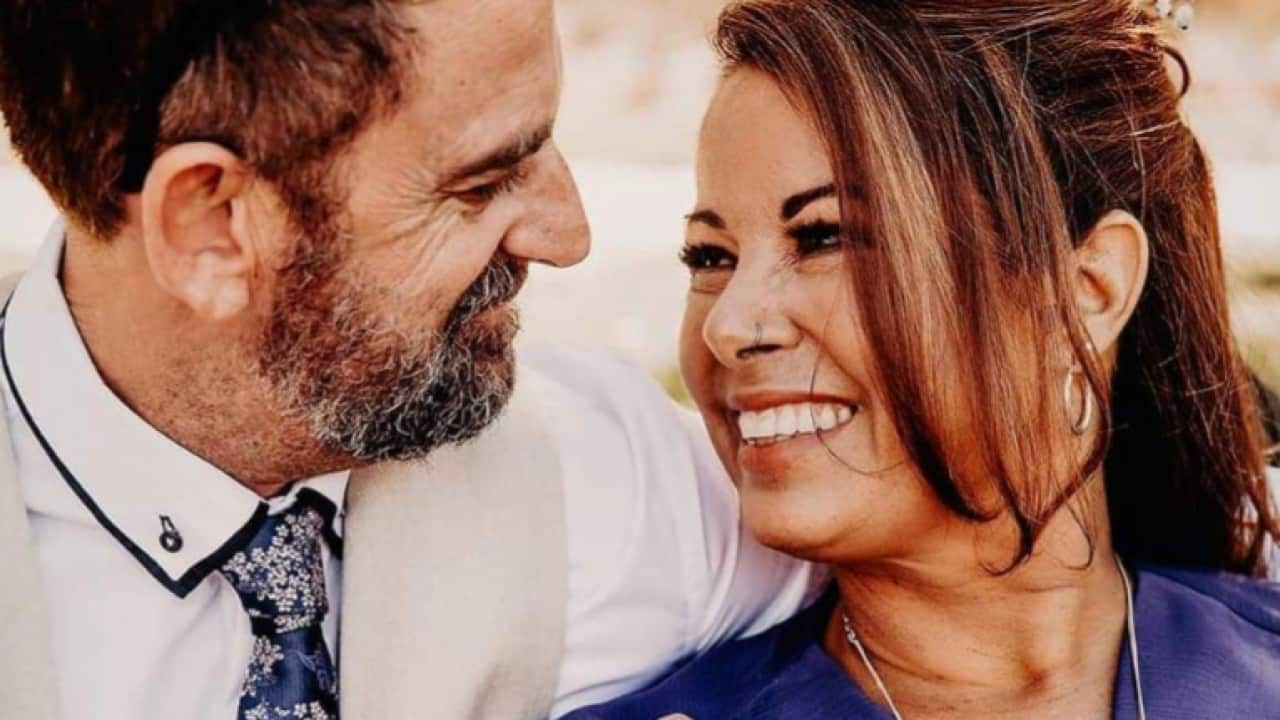Insight explores the ups and downs of pursuing true love. Watch Soulmates on Tuesday, March 21 from 8:30pm on SBS or
Darren Gittos believes he was destined to meet his wife Jo.
The pair were born on the same day in the same hospital, and although their families moved around Western Australia several times throughout their childhood, they somehow always reconnected with each other — once in primary school and again in high school.
Mr Gittos knew he’d found “the one” when they started dating at age 14.
“I felt my heart was safe immediately with Jo,” Darren told Insight.
The two broke up and went their separate ways after high school.
Years later, Jo had a dream about Darren and sent a letter to the only name that matched his in the phone book — which happened to belong to his grandfather, who forwarded the letter on.
The pair were reunited shortly after.
“[We] shared one kiss, one decent passionate kiss, and I had fireworks … I knew this was it,” Darren recalled.

Now 48, Darren describes Jo as his soulmate, which he says is "that person who allows you to shine and be your best self". Source: Supplied / .
“A soulmate is the other half of you … that person who allows you to shine and be your best self,” Darren added.
Does 'the one' really exist?
Some believe there is science at play between good matches.
Tamara Brown is the co-founder of GenePartner, a company that seeks to match men and women by analysing specific genes in their DNA.
The premise is based on the famous “sweaty T-shirt study”, conducted by Swiss biologist Professor Claus Wedekind in 1995. Researchers instructed female volunteers to smell T-shirts that had been worn by men for three consecutive days and rate them based on attractiveness.
The study analysed certain genes in DNA that codes for human leukocyte antigen (HLA) molecules. It found that women preferred T-shirts from men whose HLA molecules were most different from their own.

Studies have shown women prefer T-shirts from men whose HLA molecules are most different from their own. Source: SBS
GenePartner markets an at-home test kit that, once the results are analysed, it claims will show if partners are genetically compatible.
Ms Brown adds that people automatically do an analysis on a subconscious level as well when they meet potential partners.
“When you meet somebody and you have something that you can't really point to, but you really are just smitten by somebody — that's chemistry."
Is there only one?
Associate Professor Gery Karantzas, a relationships researcher at Deakin University, says the concept of soulmates is pervasive in popular culture.
“[There's a] kind of mystical sense that there is that particular someone that is out there for us, and that when the planets align, we will find that particular one,” he told Insight.
More than two-thirds of Americans believe in the idea of soulmates, according to a 2021 survey by market research firm YouGov.
But renowned Harvard psychologist Robert Epstein estimates the average person has 350,000 potential soulmates.
There is no scientific research that suggests soulmates actually exist, Associate Professor Karantzas says.
“You would need to date every possible suitor on the planet, and then turn around and say, ‘You know what, number 336, that was the one, and I need to find them again’."
Choosing a soulmate
While more people are turning to DNA testing, Associate Professor Karantzas warns against dating partners based on genetics.
“If you look at the evidence base around the things that make relationships work, and what matters most, environment matters two to three times more than genes,” he said.
“I suspect these companies are charging people a lot of money for focusing on only a very small picture of what makes relationships work.”
Ms Brown agrees genetics alone is not enough, even if people’s genetics are a good match.
“You can't only look at genetics, you need social compatibility,” she said.
Darren and Jo Gittos were happily married for over two decades and raised five children, until Jo was unexpectedly diagnosed with a terminal illness.
She died at home, surrounded by her family, in April 2022.

Jo died in 2022 but Darren says she is "still very much part of me". Source: Supplied
“When we love people deeply, the idea of losing them, the idea of not having them in our lives, does fill us with a deep sense of grief and anticipated loss, where the pain is too great to let them go,” he said.
Darren said life feels cold and empty without his soulmate.
“She's still very much part of me. Always will be.”




